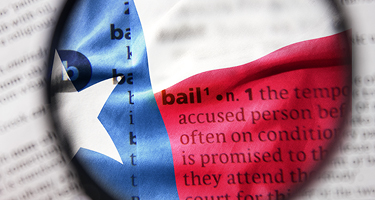On March 3, 2022, President Biden signed into law the Ending Forced Arbitration of Sexual Assault and Sexual Harassment Act of 2021 (the “Act”), amending the Federal Arbitration Act (FAA) to expressly prohibit mandatory pre-dispute arbitration agreements and pre-dispute joint-action waivers with regard to claims of sexual assault or sexual harassment. The Act applies to claims or disputes arising or accruing on or after March 3, 2022.
Specifically, the Act states, in relevant part:
[A]t the election of the person alleging conduct constituting a sexual harassment dispute or a sexual assault dispute, or the named representative of a class or in a collective action alleging such conduct, no predispute arbitration agreement or predispute joint-action waiver shall be valid or enforceable with respect to a case which is filed under Federal, Tribal, or State law and relates to the sexual assault dispute or the sexual harassment dispute.
A couple of weeks after the Act became law, the House passed the Forced Arbitration Injustice Repeal (FAIR) Act, which would prohibit pre-dispute arbitration agreements in employment, consumer, antitrust, and civil rights disputes. However, the FAIR Act lacks the bipartisan support shown for the Ending Forced Arbitration of Sexual Assault and Sexual Harassment Act and faces a much more difficult battle in the Senate. Regardless of whether the FAIR Act ultimately becomes law, employers may want to consider other forms of dispute resolution for addressing employment-related claims.
Are Jury Trial Waivers a Viable Option to Pre-Dispute Arbitration Agreements?
While the Act does not discuss jury trial waivers, they may be a viable alternative dispute resolution option for employers. Courts have generally found jury trial waivers less restrictive than mandatory arbitration clauses.
Under federal law, contractual pre-dispute jury trial waivers are enforceable, as long as the waiver is “knowing and voluntary.” In making this assessment, courts look to:
- the conspicuousness of the agreement’s waiver provision;
- the relative bargaining power of the parties;
- the sophistication of the party challenging the waiver; and
- whether the terms of the contract were negotiable or negotiated.
See, e.g., Bakrac, Inc. v. Villager Franchise Sys., (11th Cir. 2006). A primary goal of the Act was to provide individuals with the right to assert their claims before a court. Jury trial waivers, unlike mandatory arbitration clauses, do not restrict an employee’s right to avail themselves of the court system. Instead, they provide employees with the opportunity to be heard, the greater likelihood of adjudication based on the law, and the right to appeal a judgment.
Jury waivers can have the effect of:
- decreasing litigation costs;
- increasing the odds of a defense verdict at the trial stage; and
- increasing the odds for early resolution of the matter through summary judgment or some other avenue.
In addition, jury waivers can be broad or narrowly tailored to specific claims, such as the claim addressed by the Act. Employers should carefully consider the applicability of their jury waiver clauses.
It is important to keep in mind that state laws vary on the applicable standards and enforceability of jury waiver clauses. Employers should familiarize themselves with the laws of their state governing jury waivers before incorporating them into an employment agreement.
If you have any questions regarding this Alert or implementing a jury trial waiver, please contact the author, Danielle Pierre, an attorney in our Washington, DC office at dpierre@fordharrison.com, or Russell Jackson, partner in our Memphis office at rjackson@fordharrison.com. Of course, you can also contact the FordHarrison attorney with whom you usually work.
































